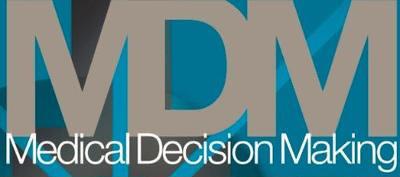Alarid-Escudero F, Gracia V, Luviano A, Roa J, Peralta Y, Reitsma MB, Claypool AL, Salomon JA, Studdert DM, Andrews, JR, Goldhaber-Fiebert JD, SC-COSMO Modeling Consortium. Dependence of Covid-19 policies on end-of-year holiday contacts in Mexico City Metropolitan Area: A Modeling Study. Medical Decision Making Policy & Practice, 2021;6(2):1-14. Download accompanying sccosmomcma R package.
Published in:

Abstract
Background
Mexico City Metropolitan Area (MCMA) has the largest number of COVID-19 (coronavirus disease 2019) cases in Mexico and is at risk of exceeding its hospital capacity in early 2021.
Methods
We used the Stanford-CIDE Coronavirus Simulation Model (SC-COSMO), a dynamic transmission model of COVID-19, to evaluate the effect of policies considering increased contacts during the end-of-year holidays, intensification of physical distancing, and school reopening on projected confirmed cases and deaths, hospital demand, and hospital capacity exceedance. Model parameters were derived from primary data, literature, and calibrated.
Results
Following high levels of holiday contacts even with no in-person schooling, MCMA will have 0.9 million (95% prediction interval 0.3–1.6) additional COVID-19 cases between December 7, 2020, and March 7, 2021, and hospitalizations will peak at 26,000 (8,300–54,500) on January 25, 2021, with a 97% chance of exceeding COVID-19-specific capacity (9,667 beds). If MCMA were to control holiday contacts, the city could reopen in-person schools, provided they increase physical distancing with 0.5 million (0.2–0.9) additional cases and hospitalizations peaking at 12,000 (3,700–27,000) on January 19, 2021 (60% chance of exceedance).
Conclusions
MCMA must increase COVID-19 hospital capacity under all scenarios considered. MCMA’s ability to reopen schools in early 2021 depends on sustaining physical distancing and on controlling contacts during the end-of-year holiday.